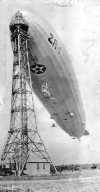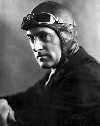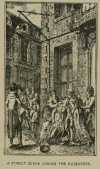 The Honda Point Disaster was the largest peacetime loss of US Navy ships. On the evening of September 8, 1923, 14 destroyers were engaging in simulated combat maneuvers a few miles from the northern side of the Santa Barbara Channel off the California coast. Upon reaching Honda Point, seven destroyers ran aground and were wrecked; two others suffered minor damage. In all, twenty-three sailors lost their lives. What is the “Devil’s Jaw,” and how did it factor into the incident? Discuss
The Honda Point Disaster was the largest peacetime loss of US Navy ships. On the evening of September 8, 1923, 14 destroyers were engaging in simulated combat maneuvers a few miles from the northern side of the Santa Barbara Channel off the California coast. Upon reaching Honda Point, seven destroyers ran aground and were wrecked; two others suffered minor damage. In all, twenty-three sailors lost their lives. What is the “Devil’s Jaw,” and how did it factor into the incident? Discuss
Source: The Free Dictionary
 The thylacine, known also as the Tasmanian wolf and Tasmanian tiger, was a carnivorous marsupial once found on the Australian mainland, New Guinea, and Tasmania. Often cited as an example of convergent evolution, it was superficially similar to a wolf or dog, though it evolved entirely independently of these animals. It was hunted to probable extinction in the 1930s, and the last captive thylacine died in the Hobart Zoo in 1936. How many thylacine sightings have been reported since then?
The thylacine, known also as the Tasmanian wolf and Tasmanian tiger, was a carnivorous marsupial once found on the Australian mainland, New Guinea, and Tasmania. Often cited as an example of convergent evolution, it was superficially similar to a wolf or dog, though it evolved entirely independently of these animals. It was hunted to probable extinction in the 1930s, and the last captive thylacine died in the Hobart Zoo in 1936. How many thylacine sightings have been reported since then?  In 1901, anarchist Leon Czolgosz shot US President William McKinley at the Pan-American Exposition, a World’s Fair in Buffalo, New York. McKinley died a week later, and Czolgosz was convicted of his murder and executed that same year. Though judged sane during the trial, Czolgosz is believed by some to have been mentally unstable after suffering a breakdown years earlier. What Broadway musical incorporates the story of Czolgosz with those of eight other presidential assassins?
In 1901, anarchist Leon Czolgosz shot US President William McKinley at the Pan-American Exposition, a World’s Fair in Buffalo, New York. McKinley died a week later, and Czolgosz was convicted of his murder and executed that same year. Though judged sane during the trial, Czolgosz is believed by some to have been mentally unstable after suffering a breakdown years earlier. What Broadway musical incorporates the story of Czolgosz with those of eight other presidential assassins?  Indignation against England’s colonial policy reached fever pitch in the British North American colonies after the passage of the so-called Intolerable Acts. The First Continental Congress, made up of delegates from every colony except Georgia, was convened in Philadelphia to address grievances against British policy. At that time, only a few radical members considered the possibility of breaking with England. What course of action did the delegates elect to pursue instead?
Indignation against England’s colonial policy reached fever pitch in the British North American colonies after the passage of the so-called Intolerable Acts. The First Continental Congress, made up of delegates from every colony except Georgia, was convened in Philadelphia to address grievances against British policy. At that time, only a few radical members considered the possibility of breaking with England. What course of action did the delegates elect to pursue instead?  The USS Shenandoah was the first American-built rigid dirigible. Its design was based on a German zeppelin downed during WWI, and it was the first ship to be filled with helium—making it safer than hydrogen-filled crafts. A year after its maiden voyage, it became the first rigid airship to cross North America. While on another tour in 1925, it passed through a storm and was torn apart. Thirteen crew members died in the crash. How did those who survived the disaster manage to do so?
The USS Shenandoah was the first American-built rigid dirigible. Its design was based on a German zeppelin downed during WWI, and it was the first ship to be filled with helium—making it safer than hydrogen-filled crafts. A year after its maiden voyage, it became the first rigid airship to cross North America. While on another tour in 1925, it passed through a storm and was torn apart. Thirteen crew members died in the crash. How did those who survived the disaster manage to do so?  Campbell, an English automobile and speedboat racer, set many speed records for motorcycles, airplanes, automobiles, and motorboats. In 1931, he was knighted for his accomplishments. Four years later, driving his famed automobile Bluebird at Bonneville Flats, Utah, Campbell set his final land speed record, becoming the first person to drive an automobile faster than 300 mph (483 km/h). He later turned to speedboat racing and set a new record in 1939, when his boat reached what speed?
Campbell, an English automobile and speedboat racer, set many speed records for motorcycles, airplanes, automobiles, and motorboats. In 1931, he was knighted for his accomplishments. Four years later, driving his famed automobile Bluebird at Bonneville Flats, Utah, Campbell set his final land speed record, becoming the first person to drive an automobile faster than 300 mph (483 km/h). He later turned to speedboat racing and set a new record in 1939, when his boat reached what speed?  After an abortive insurrection in June 1792, French revolutionaries followed it with a decisive one in August. Under pressure from the insurrection, the Assembly suspended Louis XVI and ordered elections for a National Convention to draw up a new constitution. Mass arrests of royalist sympathizers were followed by the September massacres, in which frenzied mobs entered jails throughout Paris and killed approximately 2,000 prisoners, many in grisly fashion. Who was targeted during the massacres?
After an abortive insurrection in June 1792, French revolutionaries followed it with a decisive one in August. Under pressure from the insurrection, the Assembly suspended Louis XVI and ordered elections for a National Convention to draw up a new constitution. Mass arrests of royalist sympathizers were followed by the September massacres, in which frenzied mobs entered jails throughout Paris and killed approximately 2,000 prisoners, many in grisly fashion. Who was targeted during the massacres?  In 1977, 18-year-old Terry Fox was diagnosed with a malignant bone tumor, and his right leg was amputated above the knee. Three years later, the Canadian began his Marathon of Hope, a coast-to-coast run with the goal of raising $1 for each Canadian citizen—totaling about $24 million—for cancer research. Running roughly the distance of a marathon each day, Fox covered 3,339 mi (5,373 km) before learning that the cancer had spread to his lungs. He died several months later. How much did he raise?
In 1977, 18-year-old Terry Fox was diagnosed with a malignant bone tumor, and his right leg was amputated above the knee. Three years later, the Canadian began his Marathon of Hope, a coast-to-coast run with the goal of raising $1 for each Canadian citizen—totaling about $24 million—for cancer research. Running roughly the distance of a marathon each day, Fox covered 3,339 mi (5,373 km) before learning that the cancer had spread to his lungs. He died several months later. How much did he raise?  The Iroquois Confederacy is a North American confederation of indigenous peoples, initially comprising the Mohawk, Oneida, Onondaga, Cayuga, and Seneca. A sixth tribe, the Tuscarora, joined later. The league was formed for both defense purposes and to prevent intertribal conflict. Although frequently referred to as the Iroquois, the nations refer to themselves collectively as Haudenosaunee, which means “people of the longhouse.” The league’s formation is said to have coincided with what event?
The Iroquois Confederacy is a North American confederation of indigenous peoples, initially comprising the Mohawk, Oneida, Onondaga, Cayuga, and Seneca. A sixth tribe, the Tuscarora, joined later. The league was formed for both defense purposes and to prevent intertribal conflict. Although frequently referred to as the Iroquois, the nations refer to themselves collectively as Haudenosaunee, which means “people of the longhouse.” The league’s formation is said to have coincided with what event?  At the start of the Creek Civil War, settlers north of Mobile, Alabama, sought refuge at Fort Mims. Approximately 550 settlers, including 175 armed militiamen, were at the fort when it was attacked by a force of Creek Indians belonging to the Red Sticks faction under the command of Peter McQueen and William Weatherford, known as Red Eagle. The massacre marked the transition from civil war among the Creeks to war between Americans and Red Stick warriors. How many settlers were killed or captured?
At the start of the Creek Civil War, settlers north of Mobile, Alabama, sought refuge at Fort Mims. Approximately 550 settlers, including 175 armed militiamen, were at the fort when it was attacked by a force of Creek Indians belonging to the Red Sticks faction under the command of Peter McQueen and William Weatherford, known as Red Eagle. The massacre marked the transition from civil war among the Creeks to war between Americans and Red Stick warriors. How many settlers were killed or captured?